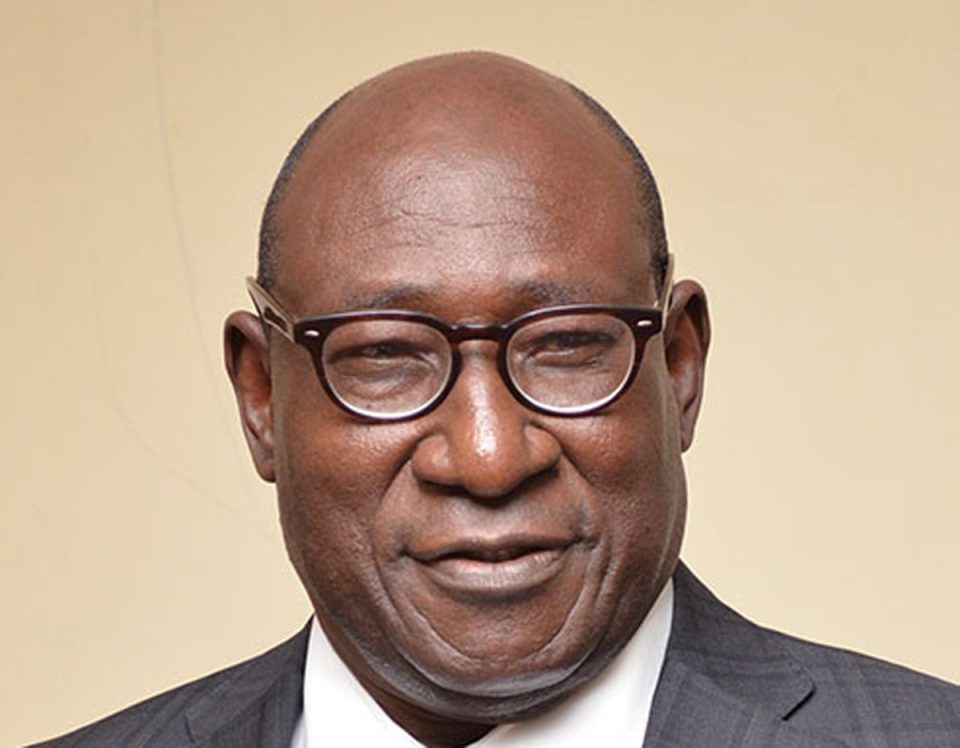The International Chamber of Commerce Nigeria (ICCN) has advised the Federal Government to fast-track the country’s growth by stimulating activities in three key sectors – agriculture, services export and telecommunications.
Chairman, ICCN, Babatunde Savage gave the advice at the 23rd Annual General Meeting (AGM) of the chamber in Lagos at the weekend.
Savage called for a concerted effort by the Federal Government, including state governments and the Central Bank of Nigeria, to synchronise fiscal and monetary policies towards eradicating the impediments hampering the performance of the key sectors.
According to him, total public debt stood at N32.915 trillion, a northward movement from a N27.40 trillion base in 2019.
He warned that high debt service payments estimated at more than half of federally collected revenue, posed a major fiscal risk to Nigeria.
Savage noted that risks such as the emergence of new COVID-19 variants (Omicron variant), energy crisis, a slowdown in global economic activities, supply chain bottlenecks, and continued increase in domestic insecurity rate might change the dynamics of the Central Bank’s monetary policy rate in the future.
On the global scene, he called on the international community to take decisive diplomatic and practical action to avert a global food security crisis.
The Russia-Ukraine war, the ICC chief said, might result in 47 million more people facing severe food shortages this year coupled with the 276 million people believed to be at risk at the start of 2022.
He added: “Shortages of fertilisers and self-defeating barriers to agricultural trade risk exacerbating food insecurity well into 2023. The risks to peace and prosperity worldwide from the trends outlined in our report are immense and entirely foreseeable — but absolutely avoidable if the international community can take the necessary collective action.
“Most urgently, we will continue to support ongoing diplomacy to unblock exports of Ukrainian grain and vegetable oils — as well as encouraging efforts to restart trade in Russian fertilisers.”
According to him, Nigeria dominated remittance inflow into Sub Saharan Africa (SSA) given the country’s large diaspora.
In 2021, the value of diaspora remittance was significantly higher than the FDI inflow, demons treating resilient nature of migrant remittances amid the pandemic, he said.
While reviewing the nation’s Macroeconomic Environment in 2021, the ICC Chairman said it started slowly with continuous recovery as the economy build back post covid-19.
“The gradual return of business and economic activities such as the local and international flights was indicative of continuous recovery. Nigeria’s GDP fell by 3% in 2020 even with mitigating measures in the Economic Sustainability Programme (ESP) as well as the Economic Recovery and Growth Strategy (ERGS), which prevented the decline from being much worse.
“The Central Bank of Nigeria cuts the Monetary Policy Rate (MPR) by 100 basis points to 11.5% to shore up a flagging economy. Due to the problem of a rising inflation rate and the slow growth of the GDP, MPR committee decided to hold all monetary policy parameters constant all through the year. Consequently, the CBN adopted and in some cases deepened the implementation of unorthodox monetary policies to change the negative trajectory of macroeconomic indicators like GDP growth, exchange rate and external reserves.
“Some examples of the policies deployed included Targeted Credit Facility (TCF), Anchor Borrowers’ Programme (ABP), eNaira, Naira4dollar scheme etc.
According to him, Nigeria’s foreign reserves hit the $40 billion mark in 2021. The rise in the reserves , he said, could be attributed partly to the successful $4 billion Eurobond issue, increased oil price, and the $3.3 billion SDR allocation from the IMF.
The ICC Chairman warned that despite the improvement, Nigeria’s foreign reserve position remains significantly vulnerable to changes in oil price.
“The high demand for dollars and the consistent intervention of the CBN in the foreign exchange market has put significant pressure on Nigeria’s foreign reserve position.
“A major fundamental way to boost Nigeria’s foreign reserves would be to attract more capital importation, especially FDI, which is more permanent, boost competitive non-oil export, etc,” he said.
Boosting non-oil export, he noted, is pivotal as global trends reveal that countries with the highest foreign reserves, such as China, Japan, Switzerland, export more than they import.
“Adopting the NAFEX rate was a commendable step towards unifying the exchange rate, which is in line with the positions of many economic experts and international bodies, like the IMF. To shore up foreign reserves and boost its capital account, the government should break state-owned monopolies that shut foreign investment out.
“Our country’s export position remains driven by crude oil export within the period under review despite the volatile global crude oil price. The recent rally in crude oil price fueled by increased international economic activities has helped to stimulate domestic export.
“Crude oil export accounted for 78.5% of the total export value of N5.1 trillion recorded in Q3 2021. Non-oil export remains subdued on the back of the country’s uncompetitive manufacturing sector that has been inhibited by FX liquidity crunch, FDI drought, insecurity, poor value addition etc.
“Still, Nigeria’s cumulative export value between Q1 – Q3 2021 rose to N13.1 trillion compared to N9.3 trillion in the same period in 2020. More worrisome is the continuous trend of the country’s external trade imbalance following the aftermath of the land border closure by the government in Q3 2019 as part of efforts to curb smuggling and boosting local production capacity.
“Receipts from international trade account for a significant portion of the nation’s external reserve. Consequently, the continuous increase in the nation’s trade deficit could worsen the foreign exchange reserve position and impede the ability of the CBN to intervene in the forex market to stabilize the naira,” Savage noted.




